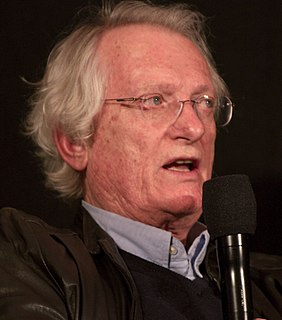A Quote by Peter Temple
The real difference between literature and pulp is the kind of emotional responses they elicit. Dan Brown can't pierce your heart. Patricia Cornwell can't make you read a sentence twice and then look sightlessly out of the window.
Related Quotes
It's like fiction - the fact that somebody's telling you a story about people who didn't exist doesn't make the experience of the story any less real in your heart and mind. You go through heavy emotional responses to these stories, and wrestling is a similar thing - but it's happening in real space.
I turn sentences around. That's my life. I write a sentence and then I turn it around. Then I look at it and I turn it around again. Then I have lunch. Then I come back in and write another sentence. Then I have tea and turn the new sentence around. Then I read the two sentences over and turn them both around. Then I lie down on my sofa and think. Then I get up and throw them out and start from the beginning.
Dan Brown, is a character from Foucault's Pendulum! I invented him. He shares my characters' fascinations - the world conspiracy of Rosicrucians, Masons, and Jesuits. The role of the Knights Templar. The hermetic secret. The principle that everything is connected. I suspect Dan Brown might not even exist.
Dan Brown is a character from 'Foucault's Pendulum!' I invented him. He shares my characters' fascinations - the world conspiracy of Rosicrucians, Masons, and Jesuits. The role of the Knights Templar. The hermetic secret. The principle that everything is connected. I suspect Dan Brown might not even exist.
A sentence is like a tune. A memorable sentence gives its emotion a melodic shape. You want to hear it again, say it—in a way, to hum it to yourself. You desire, if only in the sound studio of your imagination, to repeat the physical experience of that sentence. That craving, emotional and intellectual but beginning in the body with a certain gesture of sound, is near the heart of poetry.





































